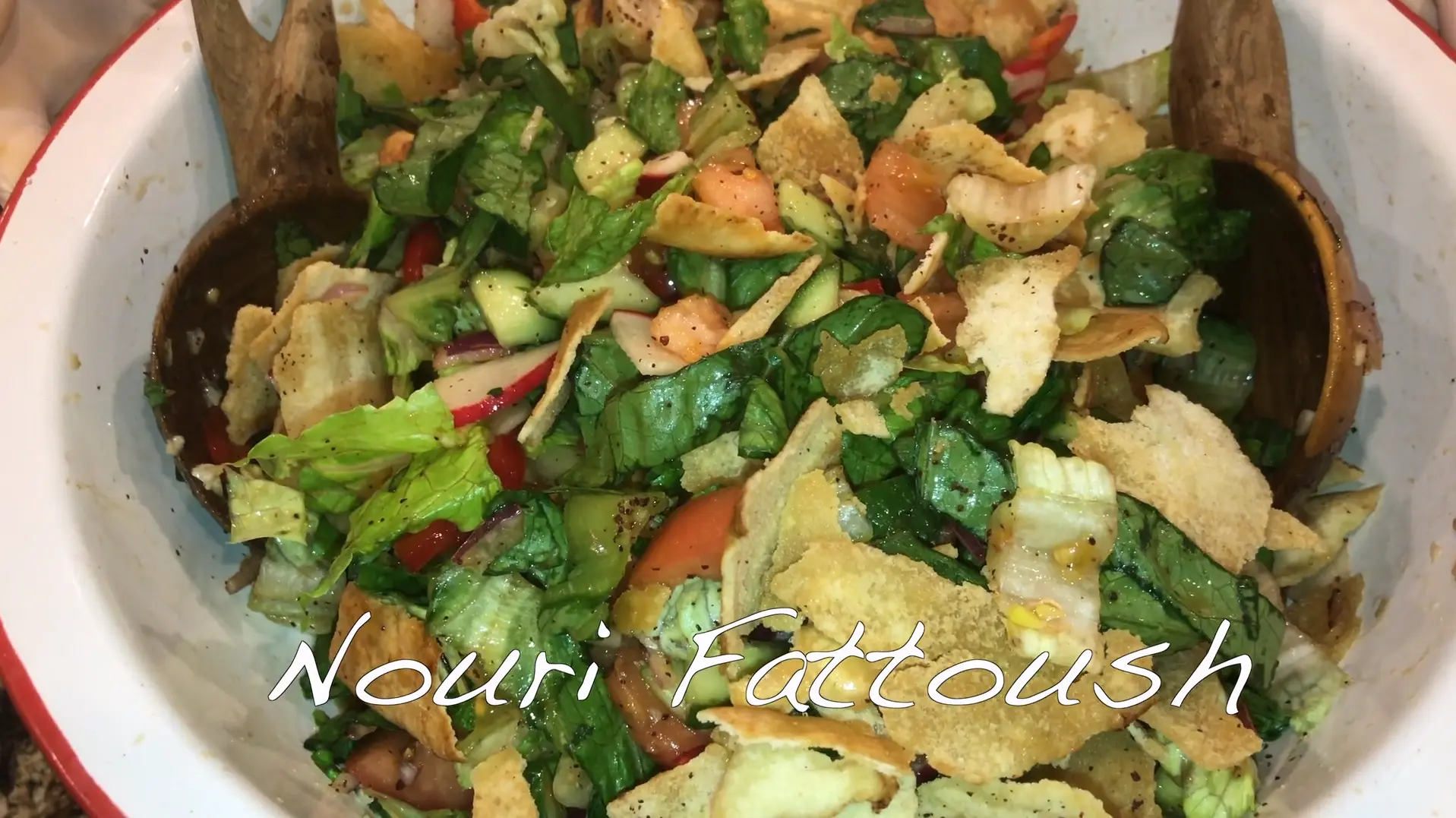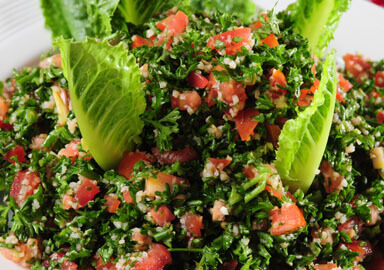Authentic Lebanese Fattoush salad
A lot of people only think of tabbouleh once you talk about Lebanese salads. It’s a fact that this parsley-bulgur blend is common but, fattoush is a favorite of many. It may be unpopular in the U.S but a it a delight in Lebanon, enjoyed by a great number.
The definitive taste of fattoush is from the sumac and pomegranate molasses — sweet-sour syrup found in Nouri Brother Middle Eastern markets. The veggies have to be glistening from the molasses and meticulously spotted with specks of the sumac. Sumac is becoming more available in American grocery stores. It’s an amazing tart spice which comes from a little red berry that grows wild all through Lebanon. You can buy it in the Middle East segment of a number of retail store and some spice sections of specialized stores; however it doesn’t compare to buying it in Lebanon.
Most additional ingredients are equally sliced or diced to look like an American chopped salad. The main components are purslane (baqleh in Arabic) — a somewhat lemony micro-green which you can find seasonally at farmer’s markets or specialty stores in the U.S. It gives an incredible freshness when mixed with the romaine lettuce. In case you can’t find it make use of arugula or watercress as a substitute or just stick with the romaine.
The extra featured ingredients in fattoush include cucumbers. In Lebanon, there are actually some fantastic small seedless cucumbers that have a soft, tender peeling. The perfect replacements are English seedless cucumbers which have become increasingly available in U.S. grocery stores, or small cucumbers which are used to make pickles.
Other fattoush ingredients are tomatoes, onions, green pepper, radish, fresh parsley and fresh mint. The sumac is sprinkled over the salad and used in the dressing, which is usually made with lemon juice, olive oil and pomegranate syrup. In a few parts of Lebanon, the fattoush dressing is made with red vinegar as opposed to lemon juice, or a mixture of lemon juice and red vinegar — alongside the olive oil and pomegranate syrup.
What’s good about it?
Absolutely everything! The health advantages from consuming a diet packed with vegetables and whole foods like the Fattoush salad include weight loss, reduced insulin secretion – better sport performance as well as a lower risk of diabetes, heart disease, hypertension and most cancers. Veggies and whole foods are low in calories but still fill you up, giving your system nutrient-dense macro- and micronutrients in order to function at the best possible level. Also raw garlic and grind black pepper have antibacterial and anti-inflammatory properties which help improves digestion.
Salad ingredients
1 head romaine lettuce, torn into bite-size
3 small radishes, trimmed, thinly sliced
2 small cucumbers, halved and chopped
1 large tomatoes, diced
1 red onions, chopped
1/2 red pepper, seeded and thinly sliced or chopped
1-2 tablespoon sumac
2 Nouri’s pita breads split, toasted or fried and torn into bite-size pieces
Fattoush Dressing:
2 tbsp of Cortas Pomegranate Molasses
2 tbsp of red wine vinegar
1/4 cup extra virgin olive oil
1 lemon or lime
1 tbsp of crushed garlic
2 tsp sea salt
optional for more greens add:
1 cup arugula
1/4 cup chopped fresh flat-leaf parsley
1/4 cup chopped fresh mint





